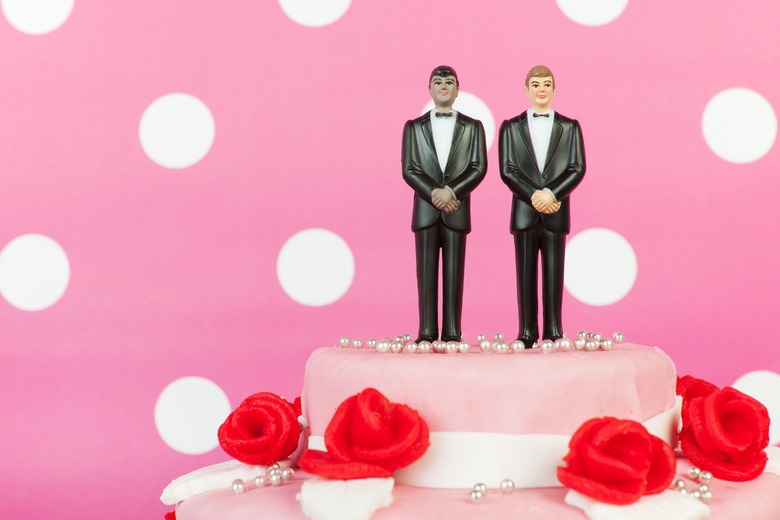Christian Baker Allowed To Refuse Same-Sex Couples, Supreme Court Rules
After a five-year legal battle, the Supreme Court has ruled in favor of a Christian baker from Colorado who refused to make a gay couple's wedding cake because of his religious beliefs. In a 7-2 ruling published June 4, it was decided that Jack Phillips' faith was treated with hostility by the state after he turned Charlie Craig and Dave Mullins away from Masterpiece Cakeshop in 2012.
Prior to their nuptials, Craig and Mullins visited Phillips' shop in hopes he'd make a cake for their reception. After the 62-year-old baker told them he couldn't provide the service for same-sex couples, the horrified spouses-to-be filed a complaint with the Colorado Civil Rights Commission, and lower courts ruled in favor of Craig and Mullins.
Justice Anthony Kennedy's opinion for the court stated that, while it is "unexceptional that Colorado law can protect gay persons in acquiring products and services on the same terms and conditions that are offered to other members of the public, the law must be applied in a manner that is neutral toward religion."
The court's decision keyed in on specific language used at the Colorado commission's hearings to show that Phillips' faith was treated disparagingly. Commissioners "endorsed the view that religious beliefs cannot legitimately be carried into the public sphere or commercial domain, disparaged Phillips' faith as despicable and characterized it as merely rhetorical, and compared his invocation of his sincerely held religious beliefs to defenses of slavery and the Holocaust," the decision notes.
In an interview on ABC's The View prior to the Supreme Court hearing, Phillips said, "I'm not judging these two gay men. I'm just trying to preserve my right as an artist to decide which artistic endeavors I'm going to do and which ones I'm not. ... I don't believe that Jesus would have made a cake if he had been a baker."
Colorado — along with 21 other states — has anti-discrimination laws for businesses open to the public, which protect consumers based on race, religion, gender, and sexual orientation. Several similar cases are currently moving through lower courts, NPR reports, and Kennedy's opinion specifically noted that the outcome for those could very well be different. For more legal intricacies nationwide, here are the weirdest laws in every state.
